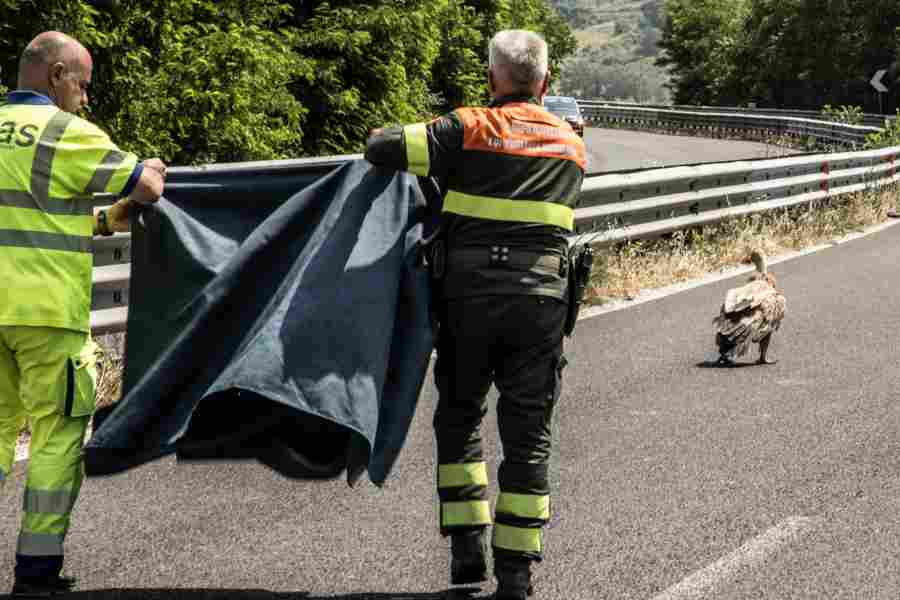As part of the LIFE project “Conservation of Black and Griffon vultures in the cross-border Rhodope Mountains”, led by Rewilding Europe in partnership with Rewilding Rhodopes Foundation, Bulgarian Society for the Protection of Birds, WWF Greece, the VCF and the Hellenic Ornithological Society, a survey on local attitudes towards vulture conservation has been done.
The project aims to recover and further expand the black and griffon vulture populations in this part of the Balkans, mainly by improving natural prey availability and reducing mortality factors such as poaching, poisoning and electrocution and collision with power lines.
This type of survey is seldom done but they are very important to understand the perceptions, motivations and drivers of several important local stakeholders.
In this study, a total of 52 people responded to a quantitative questionnaire poll and/or an in-depth interview. Here are the main results:
ü Distinct differences were observed between villages. In particular, respondents who live away from a well-known vulture spot (Madzharovo ) perceived vultures as specific for the Madzharovo region and not as a topic relevant for their region
ü Local people in Madzharovo are well aware of vultures’ presence but perceived vulture conservation as a field of work that is distant to their life and is carried out mainly by “foreigners”
ü Local businesses are rarely developed in connection to vulture-related tourism, though some commercial activities (local stores, flat rentals) are seasonally dependent on this tourism
ü Vulture-related and environmental tourism is mainly developed by people from other regions and big cities and has alienated the members from the community
ü NGO people are generally regarded as a donor to the community but no sustainable models of joint work have been created over the 20 or so years of work in the region
ü Some negative reactions to NGOs are expressed both by people working for NGOs and by local villagers. These opinions say that NGOs have become businesses and projects are aimed at gaining grants as providing salaries and offices without vision for developing environment protection activities further
ü So far no model of cooperation between food producers, tourist operators and accommodation services in the region has been established, so there is no involvement of local people and their main livelihood is large-scale stock raising and vegetable growing, while food for tourists is provided by city wholesale stores
The general attitude of the local people to vulture conservation is positive but with no personal engagement, apart from the respondents working in environmental and tourist entities.
A copy of the report is available upon request.



